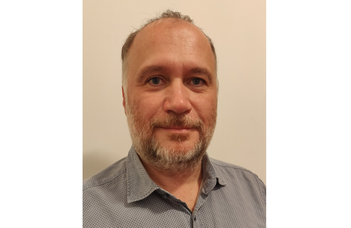Tamás Kiss (Wigner FK SZFI)

10. November 2022. 15:00 - 16:00
Pócza Jenő Classroom, Physics Building 1.71
2022. November 10. 15:00 - 16:00
Pócza Jenő Classroom, Physics Building 1.71
What does light teach us about the predictability of events? (Nobel Prize 2022: Alain Aspect, John Clauser, and Anton Zeilinger)
Abstract: The great promise of natural sciences is that they can predict future events. Can these predictions always be certain, at least in principle? In classical mechanics and electrodynamics the answer is yes, while quantum mechanics suggests that we have to give up either locality or certainty of predictions.
The Nobel Prize in physics this year acknowledges a series of optical experiments carried out in the past 50 years, aiming at testing these rather spooky predictions of quantum mechanics at a more and more precise level. In these tests, Aspect, Clauser and Zeilinger wanted to check the strange probabilistic correlations of events at distant locations. The nonclassical correlations are predicted by quantum mechanics through the phenomenon of entanglement (Schrödinger, 1935). The spookiness of distant quantum correlations were pointed out by Einstein, Podolsky and Rosen in 1935 and quantitatively first described by John Bell in 1964. We show, how loopholes in testing the Bell-inequalities could gradually be closed in the experiments.
The practical implications of being able to manipulate quantum entanglement with high accuracy will also be discussed. Quantum communication, and especially quantum key distribution (QKD), is primarily based on quantum optics. We give a short overview of this field and present new experiments realizing device independent QKD. Quantum optics plays a prominent role in the field of quantum computing as well. One of the first experiments claiming quantum advantage, Gaussian boson sampling, was performed in an optical setup. We report on some other nontrivial quantum protocols, such as quantum walks or iterated nonlinear quantum evolution, which were also realized in photonic experiments.
About the lecturer:
- google scholar
- Tamás Kiss is the head of the Quantum Information and Complex Systems research group and the Quantum Communication Infrastructure Laboratory at the Wigner Research Centre for Physics. He obtained his PhD at the Eötvös University in 1999 (partly working in Berlin) doing pioneering research on the method of quantum state tomography, which became a standard technique in quantum information technology since that time. He spent two years at the University of St. Andrews in Scotland with the help of a Marie Curie Individual Fellowship, where he studied Hawking radiation in laboratory analogues, e.g. in Bose condensed cold atomic gases. In recent years, his research was focused on quantum walks and the effect of measurements on the dynamics of systems in quantum information. He has worked out various aspects of the theory of measurement induced, iterated, nonlinear quantum protocols. In collaboration with various research groups, a number of his theoretical results have been realized in quantum optical experiments.

